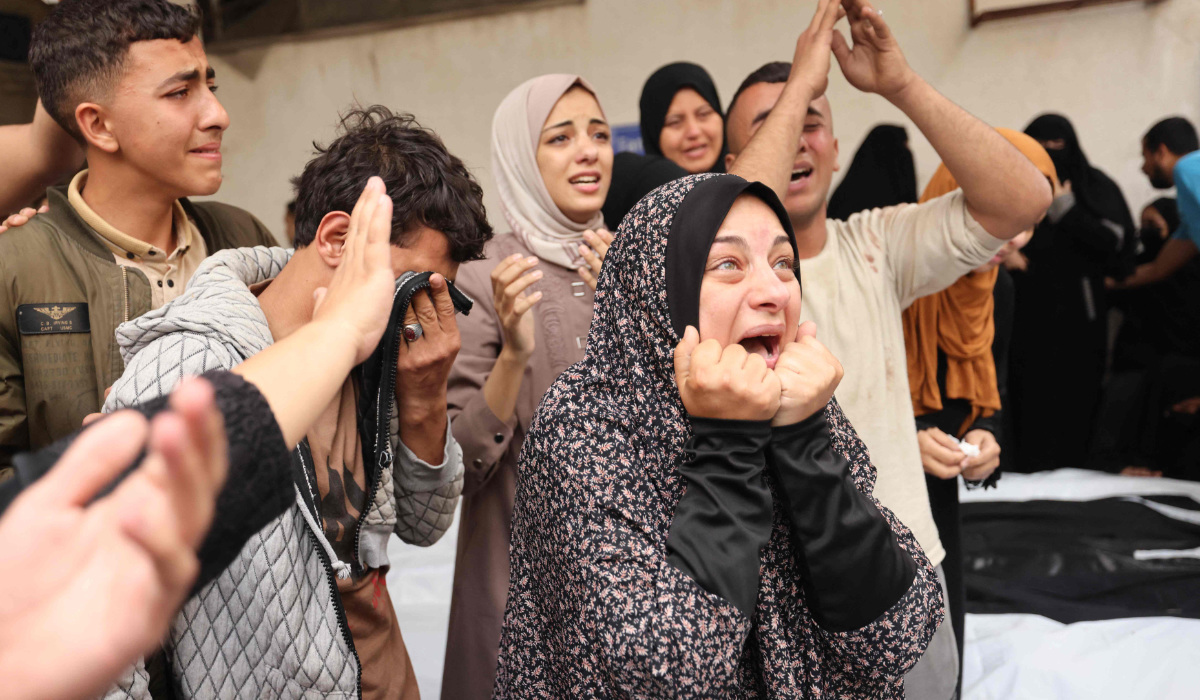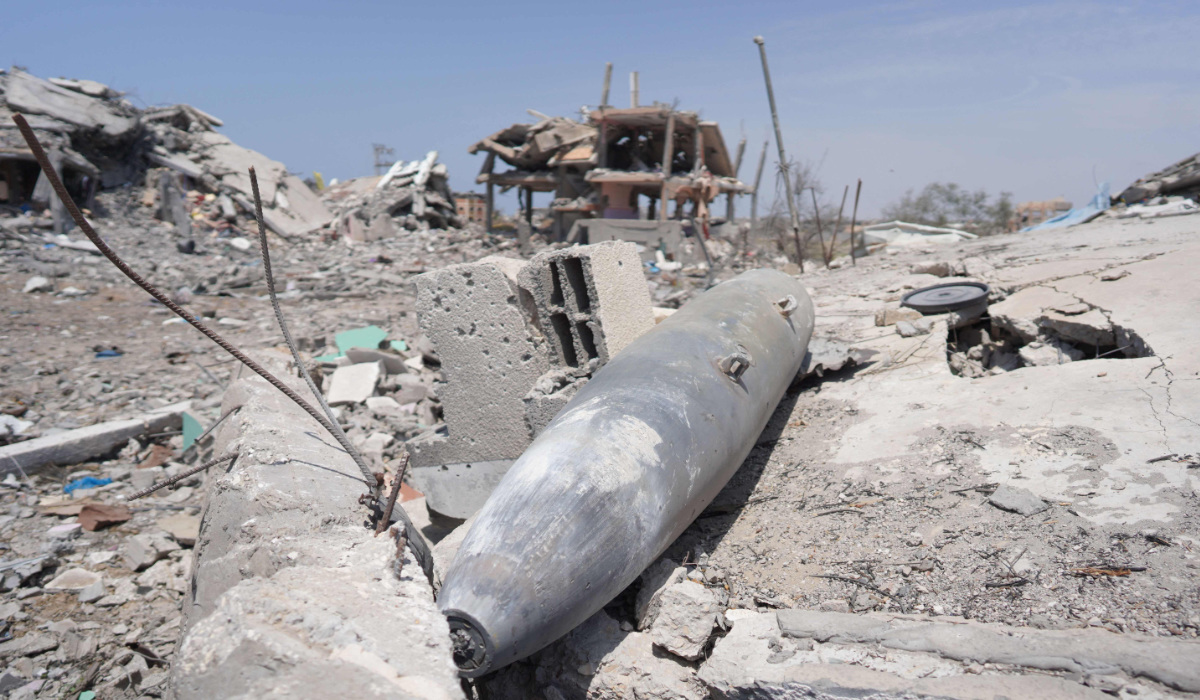WASHINGTON: The United States said Monday it opposed the International Criminal Court’s (ICC) investigation into Israel’s conduct in Gaza, amid reports that Israeli officials fear the Hague-based tribunal could soon issue arrest warrants.
Israeli Prime Minister Benjamin Netanyahu reportedly raised the issue with US President Joe Biden in a call at the weekend.
“We’ve been really clear about the ICC investigation, that we don’t support it, we don’t believe that they have the jurisdiction,” White House Press Secretary Karine Jean-Pierre told a briefing.

Palestinians mourn relatives killed in Israeli bombardment, at the al-Najjar hospital in Rafah in the southern Gaza Strip, on April 29, 2024 amid the ongoing conflict between Israel and the Palestinian militant group Hamas. (AFP)
The New York Times quoted Israeli officials as saying that Netanyahu himself could be among those charged. The court was also weighing charges against leaders of Hamas, it said.
Jean-Pierre would not confirm a report by news outlet Axios that Netanyahu had asked Biden in their call Sunday to prevent the court from sending out warrants for Israeli officials.
“The primary focus of that call was obviously the hostage deal and getting to a ceasefire, getting humanitarian aid into Gaza,” she added.

Parts of a missile lie amid debris of buildings destroyed during previous Israeli bombardment, in Nuseirat, in the central Gaza Strip on April 29, 2024, amid the ongoing conflict in the Palestinian territory between Israel and the militant group Hamas. (AFP)
The spokeswoman also declined to comment on reports that Washington had reached out to the ICC to warn that the issuing of any warrants could derail moves to reach the ceasefire and hostage deal between Israel and Hamas.
The ICC has not commented on the reports. But a series of Israeli officials has in recent days said any attempt by the court to take any action against Israel would be “outrageous.”
“Under my leadership, Israel will never accept any attempt by the ICC to undermine its inherent right of self-defense,” Netanyahu said on X on Friday.
“While the ICC will not affect Israel’s actions, it would set a dangerous precedent that threatens the soldiers and officials of all democracies fighting savage terrorism and wanton aggression.”
Foreign minister Israel Katz said his country would “not bow our heads or be deterred” by the legal threat.
“If the warrants are issued, they will harm the commanders and soldiers of the IDF (Israeli army) and provide a morale boost to the terrorist organization Hamas and the axis of radical Islam led by Iran against which we are fighting,” Katz said over the weekend.
Neither the United States nor Israel is a member of the ICC.
But the ICC opened a probe in 2021 into Israel as well as Hamas and other armed Palestinian groups for possible war crimes in the Palestinian territories.
ICC Prosecutor Karim Khan has said the investigation now extends to hostilities since Hamas’s October 7 attacks on Israel.
The ICC is the world’s only independent court set up to probe the gravest offenses by individual suspects, including genocide, war crimes and crimes against humanity.
It has previously issued warrants for national leaders — most recently Russian President Vladimir Putin over the invasion of Ukraine.
Although the prospects of actual arrest remain slim in such cases, warrants can make it difficult for leaders to travel abroad.





























